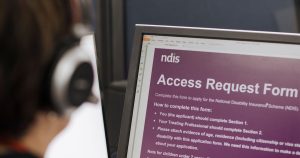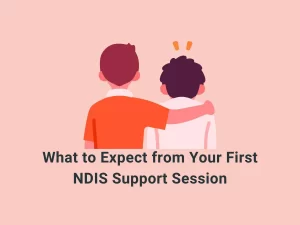Is NDIS Support Means-Tested?
Understanding NDIS Support
The National Disability Insurance Scheme (NDIS) is an Australian government initiative aimed at providing support and services to individuals with disabilities. The NDIS aims to assist people with disabilities in achieving their goals and participating fully in society. It provides funding for a range of supports, including therapy, equipment, and personal care.
However, when it comes to accessing NDIS support, many people wonder whether it is means-tested. In other words, do you need to meet certain income or asset requirements to be eligible for NDIS funding? Let’s delve into this question and explore the eligibility criteria for NDIS support.
The NDIS and Means Testing
The NDIS is not means-tested in the traditional sense. This means that your income or assets alone do not determine your eligibility for NDIS support. The scheme’s focus is on a person’s disability and how it impacts their daily life, rather than their financial situation. https://inclusivementalhealth.org/behaviour-support-victoria/

The NDIS eligibility criteria are based on three key factors:
1. Disability Requirements
To be eligible for NDIS support, you must have a permanent and significant disability that affects your ability to participate in everyday activities. The disability must be likely to be lifelong and require support from the NDIS to achieve your goals. This criterion focuses on the impact of the disability, rather than financial circumstances.
2. Age Requirements
The age requirements for the NDIS vary depending on your location. Generally, to access the NDIS, you need to be under 65 years old. However, if you are already receiving disability supports, you may be eligible for the NDIS regardless of your age. Again, the focus is on disability and not means-testing based on age.
3. Residency Requirements
The NDIS is available to Australian citizens, permanent residents, and certain visa holders who meet specific residency requirements. The residency criteria ensure that the scheme is accessible to those living in Australia, regardless of their financial circumstances.
Financial Information and NDIS
While the NDIS itself is not means-tested, there is some financial information required during the application process. This information is used to determine the funding and support necessary to meet an individual’s disability-related needs effectively.
During the NDIS application, you will be asked to provide details about your income, assets, and expenses. This financial information is not used to assess eligibility, but rather to understand the level of support required. The NDIS funding is allocated based on a person’s disability-related needs, not their financial situation.
It’s important to note that the NDIS operates on the principle of reasonable and necessary supports. The scheme aims to fund supports that are directly related to a person’s disability and are considered reasonable and necessary to help them achieve their goals.
Conclusion
The NDIS is not means-tested, meaning that your income and assets do not determine your eligibility for support. The scheme focuses on disability requirements, age, and residency to determine eligibility. Financial information is collected during the application process to determine the appropriate level of funding and support required to meet an individual’s disability-related needs effectively.
If you or someone you know has a permanent and significant disability, it is worth exploring the NDIS and its eligibility criteria. The scheme aims to provide essential support and services to enhance the lives of individuals with disabilities, irrespective of their financial circumstances.

Remember, the NDIS is designed to promote inclusion, participation, and independence for people with disabilities, ensuring that they can lead fulfilling lives within their communities.

